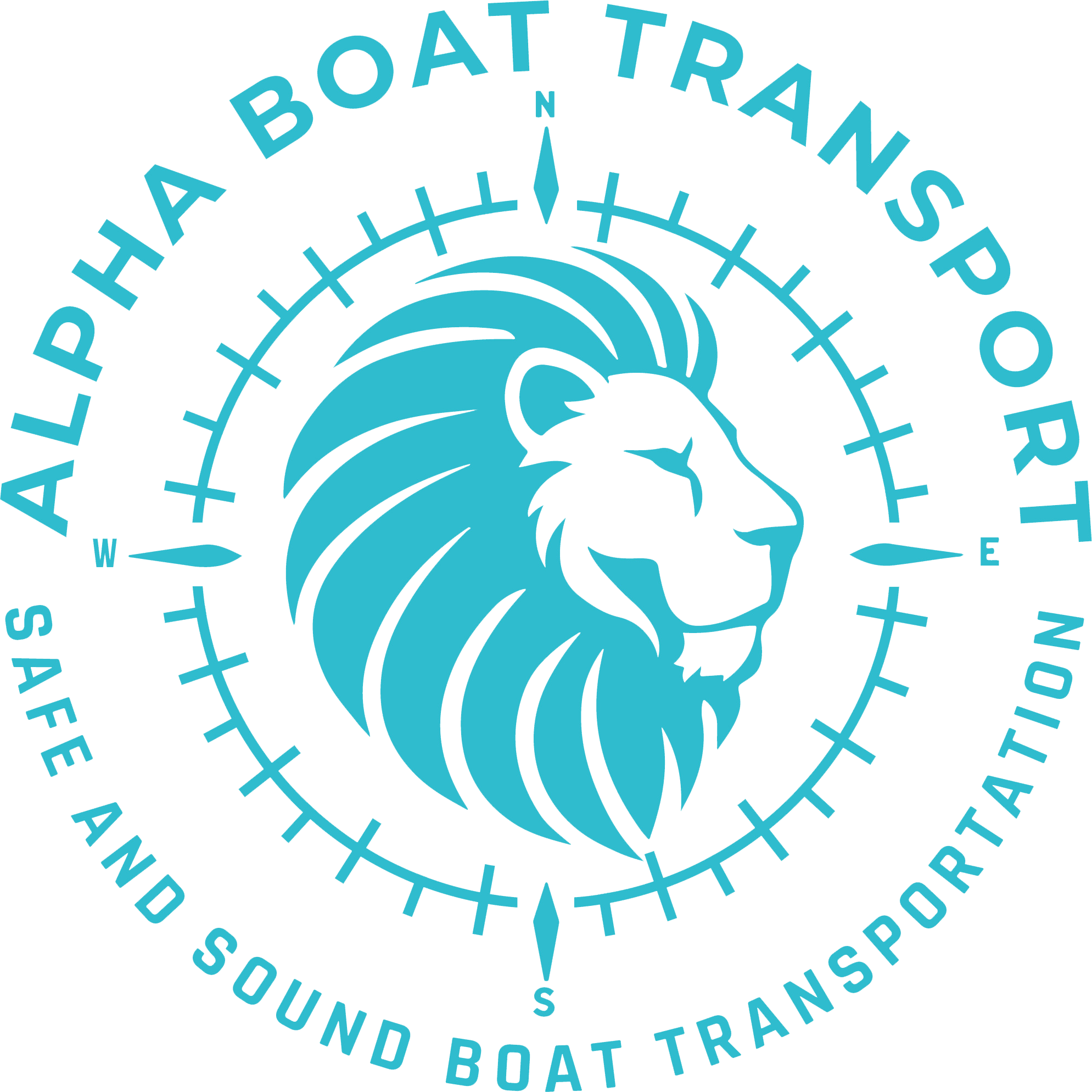Permit Violations Delay 60% of Boat Hauls: What Boat Owners Are Not Being Told
Picture this: you’ve got your dream boat prepped, trailer cleaned, inspection done, and you’re ready to roll across state lines. Then bam—your boat shipment hits the brakes. Why? Missing permits or a blown route plan. According to Heavy Haulers’ boat transport report, over 60% of all boat transportation delays are tied to permit violations and route miscalculations. And let me tell you, those numbers aren’t just red tape—they’re sinking hundreds of hauls every week.
This blog breaks down why permit regulations are the Achilles’ heel of boat trailer transport—and how boat owners can avoid getting caught in a transport trap. As someone who grew up hearing my father argue Kingpin rules at truck stops and now tracks these regs for a living, I’ve seen firsthand how badly this can go for people who don’t know the rules of the road.
We’ll cover critical width restrictions, stealth state-level storm policies, escort car scams, the creep of AI route systems, and why Alpha Boat Transport continues to defy the delay odds. If you’re trailering anything longer than 30 feet, skip the drama and read this all the way through. Trust me, Coda—my half Aussie shepherd, half basset hound—could sniff out some of the transporter BS better than the DOT does.
Why Permit Problems Derail So Many Boat Trips
Understanding Oversize Boat Classification
Let’s start with the basics. In most U.S. states, any load wider than 8 feet 6 inches is considered oversize. That means your 28-foot cuddy cabin or beam-heavy sailboat automatically triggers oversize rules. Once you cross this width threshold, you can no longer move your boat on a whim. You’re now married to Department of Transportation regulations, and the prenup ain’t cheap.
State-to-State Variability Is a Nightmare
Now here’s where it gets messy. Each state has its own permit process, weekend travel rules, escort vehicle requirements, and allowable hours. You see what works fine in New Jersey will get your vessel impounded in California. States like Florida just changed the game—any boat taller than 14 feet 6 inches now needs a route survey with those white-pole escort cars. That adds at least two days to your schedule. Boat transport from New Jersey to Florida? Yeah, you better read the fine print before you book.
Expert Insights on Route Miscalculations
The Problem with Highway Clearance Blind Spots
Oversized hauls need precise route planning to avoid low bridges, sharp curves and weight-restricted overpasses. My dad used to call these “killer curves” because one bad coordinate can leave your vessel jammed under a railroad bridge. Even GPS software struggles with real-time bridge clearance data. That’s where companies cut corners and hope you don’t notice until it’s too late.
High-Tech Meets Highway: Automated Route Planning
Some firms are now leveraging AI tools to pre-scan routes and flag problem areas. That’s great, but only if the data is updated hourly. Otherwise, you end up paying for a tech-generated detour that leads to a dead end in a cornfield. Alpha Boat Transport uses verified hybrid routing—tech plus human inspection—and that’s saved them a ton of downtime penalty flags. Their boat transportation services consistently rank among the best because they don’t rely blind on automation.
Insurance Coverage Gaps: The Hidden Cost of Non-Compliance
Regulatory Violations Can Void Your Insurance
Here’s the kicker most people don’t realize—If your boat is hauled without valid permits and something goes wrong, your insurance company can (and will) deny coverage. That 200K sailboat is suddenly uninsured because your carrier decided to skip an escort vehicle to save $500. Happens more than you’d think. You gotta ask, “Was my boat legally transported?” before filing a claim.
Shortcuts That Backfire: Real Owner Repercussions
We had one guy—38-foot Sea Ray from South Carolina heading west. Transporter cut a permit corner through Mississippi to save fees. Trailer clip hit a detour curb, ruptured the hull. Insurance rescinded the coverage because the route wasn’t permitted. Owner out $19,000. Let that sink in. If you’re booking a quote, check how they handle permits. Companies like Alpha’s South Carolina boat transport division track route validity like hawks.
Navigating State-Specific Boat Trailer Transport Laws
Florida and California: Regulatory Ground Zero
Florida’s new threshold requiring pre-route height surveys caused a 22% jump in permit rejection rates since Q4 last year. Meanwhile, California has always been a pain due to tight kingpin-to-rear-axle length restrictions. They’re clocking you from the moment you cross the border—any deviation can lead to your boat being sidelined for inspection. Florida boat transport isn’t what it used to be—it’s a permit chess match these days.
States with Surprising Red Tape
You’d think New York or Texas would be the toughest, but actually, states like Illinois and Washington have specific seasonal weight restrictions tied to rainfall levels and freeze-thaw cycles. That means your trailer might be within spec in January and illegal in March. Alpha’s local insight and real-time data checks from Washington boat transport specialists help owners dodge these curveballs.
The Alpha Difference: Engineering Meets Road Reality
Mechanical Precision Meets Regulatory Smarts
Alpha Boat Transport separates itself from cowboy carriers by obsessing over DOT specs as much as horsepower. Their powerboat transport checklist gives you a clear view of compliance steps before pickup. They’ll walk you through permit mapping, escort vehicle fees, and pinpoint drop site options—not just dump your boat ‘near’ your marina and ghost.
Social Proof from Real-World Ops
- 98% permit approval rate on first submission
- Verified transport across all lower 48, including Alaska and tough seasonal states
- Tech-assisted route vetting plus human recon on high-traffic hauls
- Multiple 5-star transporter reviews from liveaboard captains and weekend warriors
This approach, which blends highway IQ, trailer tech and longstanding DOT relationships is why companies like Alpha are consistently named a top boat transport company.
Frequently Asked Questions
Why is boat trailer transport delayed so often?
Boat trailer transport faces delays primarily due to permit violations and incorrect route calculations. Oversize loads require special permits, escort vehicles, and route surveys which vary state to state—missing any one of these steps can halt your trip entirely.
What size boat requires a transport permit?
Any boat wider than 8 feet 6 inches will likely require an over-dimensional permit for boat trailer transport. Heights above 13 feet and lengths over 40 feet may trigger additional requirements based on state regulations.
How do I avoid insurance issues with boat hauls?
Ensure your transporter obtains all mandated permits and follows legal routing. If a boat is moved without proper compliance under boat trailer transport laws, insurance providers may reject damage claims due to illegal haulage conditions.
What should I ask a boat transport company before hiring?
Ask for proof of permit experience, route analysis details, insurance coverage terms, and what steps they take to ensure legal compliance in each transit zone. A reputable boat trailer transport provider like Alpha will outline everything up front.
Which states are most complicated for boat trailer transport?
Florida and California stand out due to advanced surveys and axle laws. But Washington, Illinois, and even New York have seasonal or municipal restrictions that trip up many haulers unwilling to do their homework.
Are automated route systems accurate for boat hauling?
They’re helpful but not foolproof. AI-assisted planning is only as good as the data feeding it. For oversized vessel moves, human-reviewed mapping is still essential to avoid bad detours, bridge strikes, or missed curfews during boat trailer transport.
What’s the best way to prepare my pontoon or sailboat for overland haul?
You need to follow preparation guides tailored to your vessel type. For instance, Alpha offers tailored tips in their pontoon boat checklist and sailboat transport checklist to ensure your rig meets DOT-approved hauling standards.

